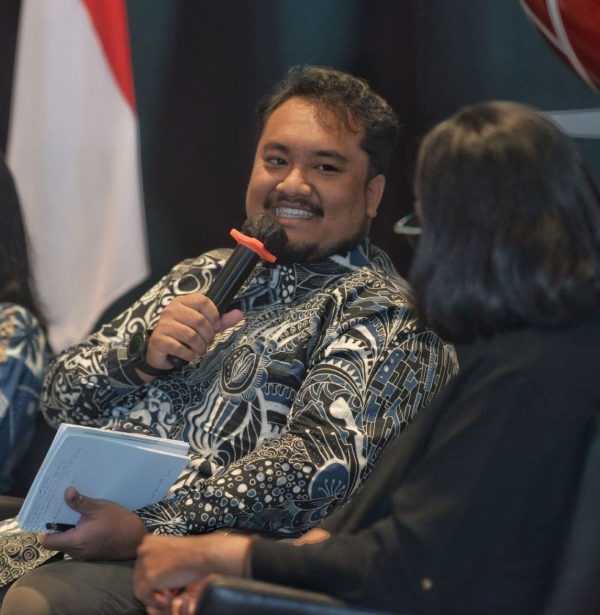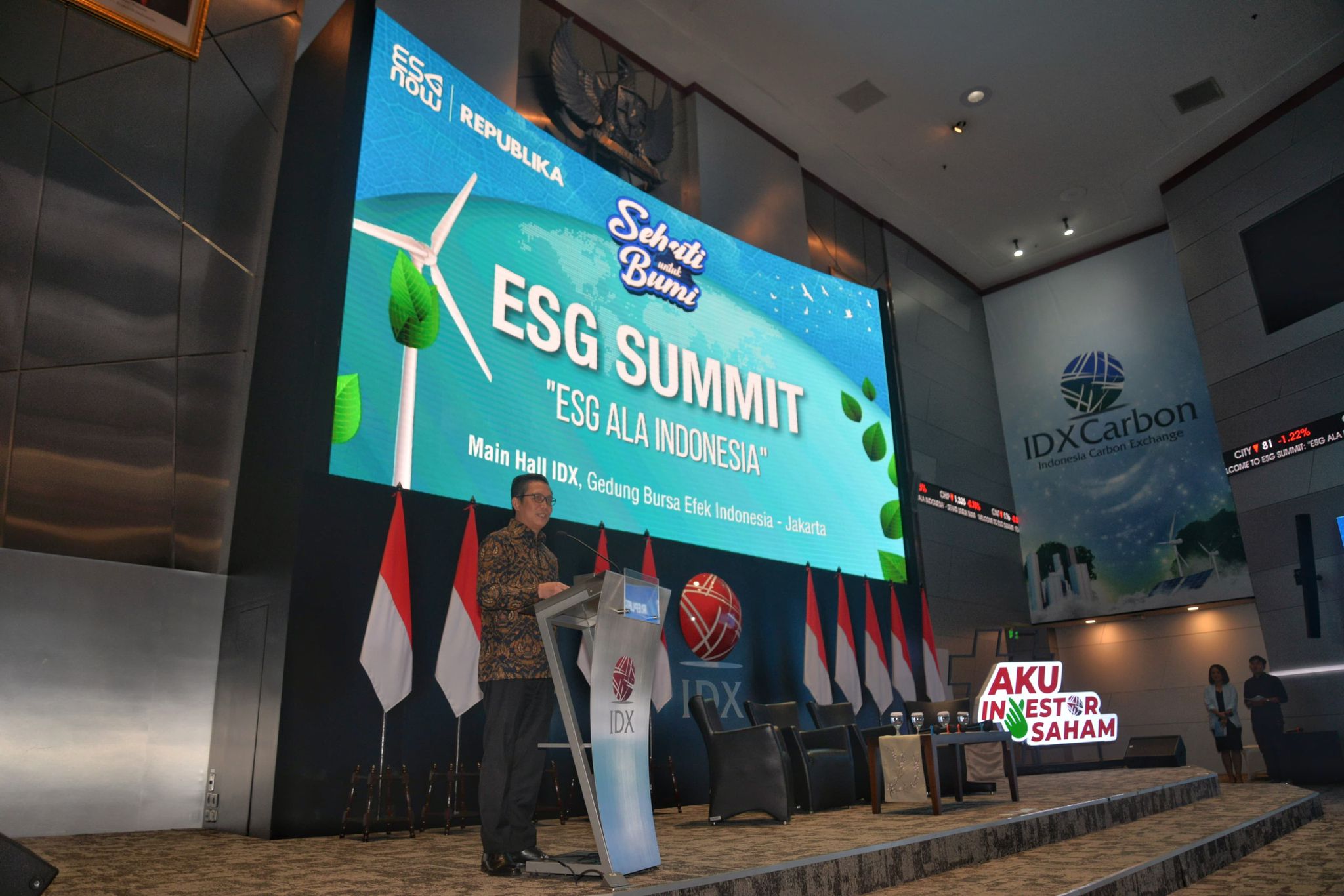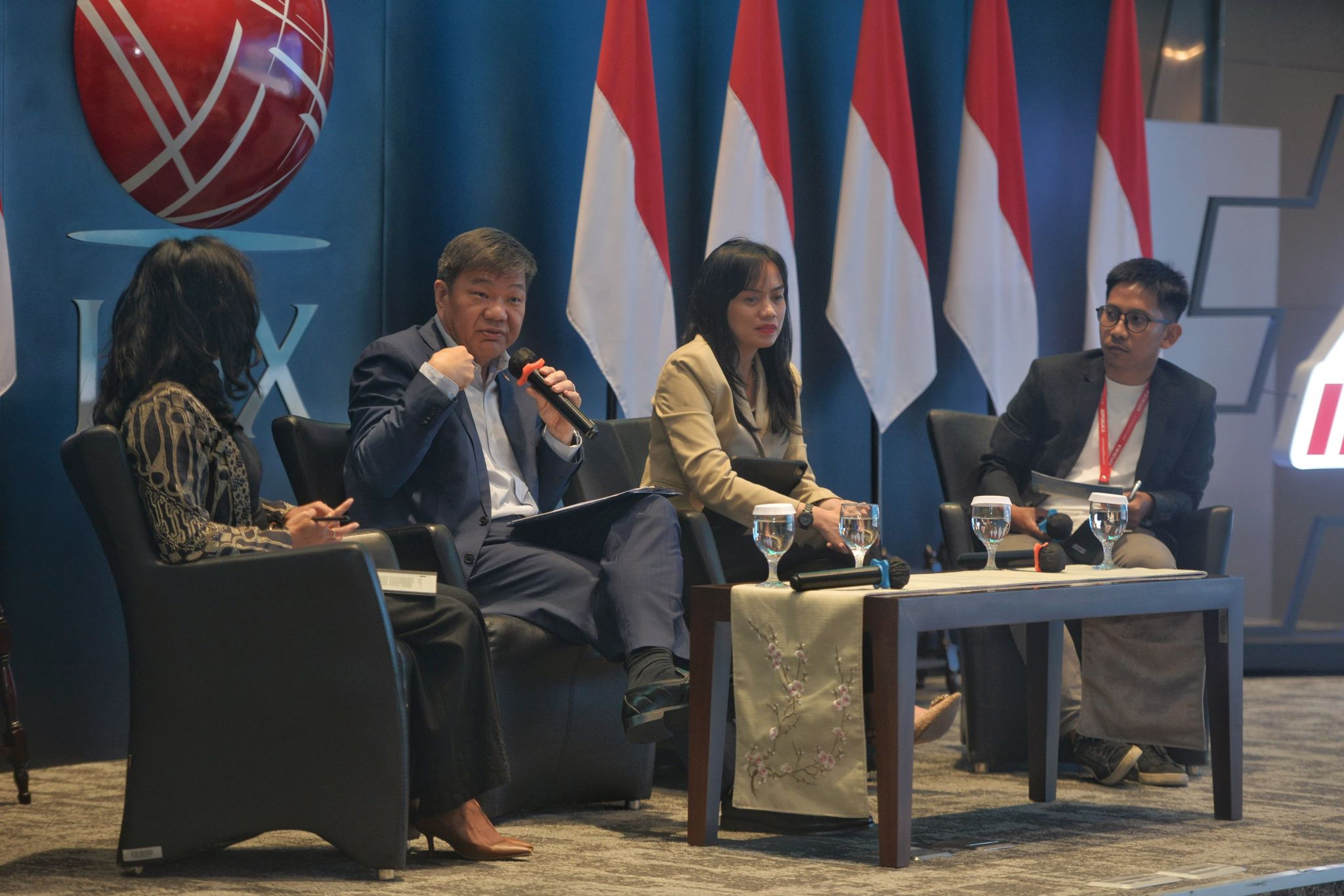Shaping ESG Indonesia: Local Wisdom for Sustainability
Community-driven ESG for Indonesia’s sustainability
Longgena Ginting & Dionaldy Permana

Purpose Indonesia had the honor of participating in the recent ESG (Environmental, Social, and Governance) Summit hosted by Republika and the Indonesian Stock Exchange in Jakarta. Representing Purpose and the Muslims for Shared Action on Climate Impact (MOSAIC) were Aldy Permana, Strategic Communications Manager and Rika Novayanti, Senior Advisor, alongside key figures such as the Singaporean Ambassador to Indonesia, Kwong Fook Seng and senior government officials from the Ministry of State-Owned Enterprises and the Ministry of Environment and Forestry.
This summit continued dialogue from a focus group discussion earlier this year, that explored how ESG practices can be effectively implemented in Indonesia. Both discussions sought to emphasize that Indonesia’s approach to ESG must be adapted to local contexts rather than simply adopting Western ESG frameworks, which might not fully resonate with the unique environmental and social challenges faced by Indonesia.

Developing ESG “A-la Indonesia”
During the summit, Aldy Permana emphasized the critical role communities play in shaping Indonesia’s ESG landscape. ESG (Environmental, Social, and Governance) is often associated with corporate responsibility—an essential framework for businesses to ensure they operate sustainably and ethically. However, ESG goes beyond boardrooms and corporate policies. It touches upon the very fabric of society, particularly in environmental and social dimensions, which are deeply intertwined with the lives of local communities. In Indonesia, this connection is especially pronounced, where communities often serve as the first line of defense against environmental degradation and the stewards of cultural and social wisdom.
According to Aldy, one key aspect of ESG a-la Indonesia is recognizing and utilizing local wisdom. Communities should be included from the beginning in developing ESG initiatives, as they bring valuable knowledge and understanding that can make these standards more relevant and impactful. By combining global ESG frameworks with local insights, Indonesia can carve its own path toward sustainable governance that truly fits its unique needs.
When we talk about ESG in Indonesia, it’s not just about businesses being responsible for their environmental impact or maintaining transparent governance. It’s about embedding community perspectives into the heart of these frameworks, ensuring that local populations have a say in how resources are managed, how policies are shaped, and how the future of their environment is protected.
Communities, especially in rural areas, possess a wealth of local knowledge and traditional practices that have allowed them to live in harmony with their environment for generations. This local wisdom includes sustainable farming techniques, water conservation methods, and communal forest management, which have the potential to significantly enrich ESG strategies. Yet, these voices are often underrepresented in formal ESG frameworks, which tend to focus more on corporate compliance and top-down governance.
Government’s Growing Commitment to ESG
The Ministry of State-Owned Enterprises shared their ambition to integrate ESG into the core of corporate governance. They aim to place ESG-focused roles directly under the board of directors in all state-owned enterprises. The Ministry of Environment and Forestry reminded summit attendees that Indonesia’s commitment to sustainability is not new. In fact, long before ESG became a widely recognized global framework, Indonesia had already established sustainability criteria for businesses operating in the country. As early as the 1990s, investors were required to meet specific environmental benchmarks in order to continue their activities in Indonesia. This long-standing focus on sustainable practices demonstrates that Indonesia has been a forerunner in adopting policies that protect its rich biodiversity, natural resources, and ecosystems.
These efforts are critical in a country like Indonesia, where industries such as palm oil, mining, and timber have historically contributed to deforestation, land degradation, and environmental harm. By maintaining stringent sustainability requirements, the government is ensuring that businesses operating within Indonesia contribute positively to the country’s environmental future. This also serves as a reminder that Indonesia is not just catching up to global ESG trends but has been laying the groundwork for decades.

The Role of Private Sector and Community-Driven Initiatives
During the ESG summit, Rika Novayanti from Purpose emphasized the immense potential that lies within Indonesia’s private sector and community-driven initiatives to help the country meet its ambitious climate targets. However, she also pointed out a crucial gap: while the government has made progress in promoting ESG within corporate governance, it has not yet fully integrated the contributions of the private sector and grassroots community efforts into its official impact measurements.
This lack of integration represents a missed opportunity. The private sector, particularly industries that are high emitters of carbon, has the capacity to make significant contributions to climate action. By adopting carbon monetization strategies, companies can turn sustainable practices into economic opportunities, aligning profit with environmental responsibility. Yet, without formal recognition or encouragement from the government, many of these efforts remain disconnected from national climate objectives, limiting their overall impact.
On the other hand, community-driven initiatives like the Forest Waqf project, which Rika highlighted, provide a powerful model of how local efforts can directly contribute to environmental sustainability and social welfare. Forest Waqf, for instance, is an initiative rooted in local tradition and Islamic principles, where communities collectively manage and protect forest areas. This approach not only helps conserve critical ecosystems but also creates a social structure that benefits the community economically and spiritually. However, for initiatives like this to thrive and reach their full potential, government support is crucial—especially in evaluating the carbon value and social impact of these projects.
By providing the necessary tools and frameworks, the government can help communities accurately assess their environmental contributions, making it easier to integrate these local projects into broader national and global climate strategies. This partnership between communities, private companies, and government agencies would not only help Indonesia meet its climate commitments but also promote inclusive development that uplifts the people directly impacted by environmental challenges.
The Singaporean Ambassador to Indonesia, Kwong Fook Seng, added an important perspective, noting that while sustainable climate action is a complex and difficult journey, it’s essential for Indonesia and ASEAN to stay committed to their goals.
“Sustainable climate action is not an easy journey, and we must not give up. Indonesia has a lot of potential, and I want to see an ASEAN that is more resilient and becomes a driver of the future economy,”
ESG for a Sustainable Future
As Indonesia confronts the escalating impacts of climate change, the need for comprehensive and adaptable ESG frameworks has become more urgent than ever. The discussions at the ESG Summit reinforced the importance of collaboration across all sectors—government, business, and civil society—in developing sustainable practices that not only protect the environment but also drive long-term economic growth and social well-being.
By fostering a multi-stakeholder approach that integrates global ESG standards with local wisdom and community-driven solutions, Indonesia is poised to carve out a unique path in the global sustainability movement. The country’s potential to be a regional leader in ESG implementation is clear, but it will require sustained commitment from all sectors to ensure that its growth is both environmentally and socially inclusive.
With the groundwork laid by government initiatives, the innovation potential within the private sector, and the invaluable contributions from local communities, Indonesia has all the ingredients to become a model of sustainable development in Southeast Asia. The journey toward this future may be challenging, but with the right partnerships and persistence, Indonesia can lead the way toward a more resilient, equitable, and sustainable world.